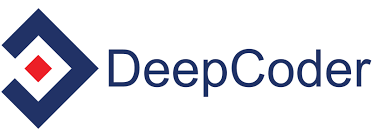Artificial Intelligence (AI) is rapidly reshaping industries worldwide, and the world of programming is no exception. With its ability to automate tasks, boost productivity, and enhance code quality, AI is becoming an integral part of the developer’s toolkit. In this article, we’ll explore how AI is transforming the programming landscape and the exciting implications it holds for the future of software development.
The notion that coding is exclusive to humans is expiring. Today, increasingly clever AI programs are being developed that specialise in writing code. One of the most notable of these is DeepCoder, an AI program developed by Microsoft and Cambridge University. DeepCoder is not only capable of coding by harvesting code from a vast database, but it is capable of learning, too.

This leads to the classic, fear-driven question: if AI can code already, what’s to stop it from taking over from its creators? It’s been predicted that computers will be capable of replacing programmers by 2040. In fact, the fear that AI will replace programmers is one of the top worries in the profession, with 29% of programmers citing it as their biggest concern in 2016.
AI-Driven Code Generation
AI has the potential to revolutionize the way we write code:
1.Auto-Completion: AI-powered code editors offer intelligent auto-completions, making coding faster and less error-prone.
2. Code Generation: AI can generate entire code segments based on high-level instructions, significantly speeding up development.
3. Language Translation: AI can translate code between programming languages, facilitating cross-language development.
4. Code Refactoring: AI-driven tools can analyze code for inefficiencies and suggest improvements, leading to cleaner and more maintainable codebases.
Efficient Debugging and Testing
Debugging and testing are critical phases in software development, and AI is enhancing them:
1. Bug Detection: AI algorithms can identify potential bugs, helping developers catch issues early in the development cycle.
2. Automated Testing: AI automates test case creation and execution, ensuring comprehensive test coverage and rapid feedback.
3. Predictive Analytics: AI analyzes historical data to predict future issues, enabling proactive debugging and performance optimization.
AI-Powered Collaboration
Collaboration is key in software development, and AI is facilitating teamwork:
1. Code Reviews: AI assists in code reviews by highlighting potential issues and suggesting improvements, expediting the review process.
2. Knowledge Sharing: AI helps developers discover relevant code snippets, documentation, and resources within extensive code repositories.
3. Real-time Collaboration: AI-driven collaboration tools enable real-time code editing and discussion, making remote teamwork seamless.
Code Security and Vulnerability Detection
Security is paramount, and AI is bolstering code security:
1. Vulnerability Scanning: AI scans code for security vulnerabilities, aiding in the identification and mitigation of potential threats.
2. Pattern Recognition: AI identifies patterns associated with known security vulnerabilities and alerts developers to risky code.
3. Anomaly Detection: AI detects unusual code behavior that may indicate security breaches, enhancing overall system security.
Conclusion
AI and programming are embarking on a transformative journey, with AI becoming an indispensable ally for developers. By automating tasks, improving code quality, and enhancing collaboration, AI is streamlining software development. However, the human element remains essential.
Developers should embrace AI as a powerful tool, enhancing their creative problem-solving abilities. As AI continues to advance, the programming landscape will evolve, fostering a future where developers can focus on innovation, confident in AI’s support.
The future of programming is undeniably AI-driven, offering endless possibilities for innovation and growth.
